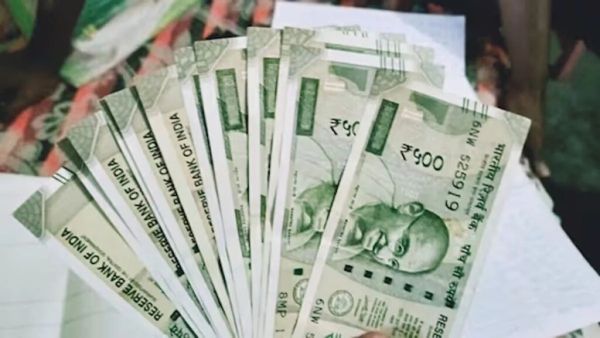
The central government has started the process of forming the 8th Pay Commission, which was announced earlier this year. But so far neither the names of the members of the Commission have been decided nor the terms and conditions (TORs) have been finalized for it. Nevertheless, this news for government employees and pensioners is no less than a big gift. Let us know how long this commission can apply and what changes will be made.
Even though the formation of the commission is delayed, it will not affect the pockets of government employees. The government has made it clear that the difference between the announcement and the implementation will be paid as arrears. That is, the employees will get their full rights. If sources are to be believed, about 50 lakh employees and 65 lakh pensioners will benefit if the 8th Pay Commission is implemented. Apart from this, there is also every possibility of an increase of 3% or more in dearness allowance (DA) in the festive season. Especially during Navratri, the government can give this gift to its employees and pensioners. After the improvement of GST, there has been an increase in the government treasury, due to which the increase in DA can be higher than the last six months.
Preparations to the 8th Pay Commission are still running slow. Neither the formation of the commission has been completed nor its terms and conditions have been fixed. Due to this lethargy, there is increasing restlessness among employees and pensioners. According to media reports, even if the commission is not formed by mid -2025, it may take up to the end of 2026 or till the beginning of 2027.
The 7th Pay Commission was formed in February 2014 and was implemented in January 2016. In this process, the government took about two years, including preparing the report, taking approval from the cabinet and implementing it. This time a similar deadline is expected, but the possibility of delay remains a matter of concern for the employees.
The role of fitment factor is the most important in the pay commission. It decides how much the minimum basic salary of employees will increase. The fitment factor in the 7th Pay Commission was 2.57, due to which the minimum original salary increased from Rs 7,000 to Rs 18,000.
Experts believe that the fitment factor in the 8th Pay Commission may be between 1.92 and 2.86. If the 2.86 factor is applied, the minimum wage can reach Rs 51,000. However, in view of the burden on the government treasury, the fitment factor of 2.6 to 2.7 is considered more real.
On the implementation of the 8th Pay Commission, the dearness allowance (DA) will be included in the original salary. Currently the rate of DA is around 55%, which is applicable from January 2025. Another increase is expected in July 2025. The merger of DA in the new salary structure will increase the total salary, but after that the calculation of DA will start from zero again. This can be limited to DA in the next few years.
The same rule will be applicable for pensioners. Their Dearness Relief (DR) will be included in the original pension, which will bring a big change in the monthly pension. Pensioners’ organizations have demanded complete transparency and clarity in this process so that there is no confusion.